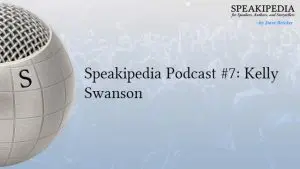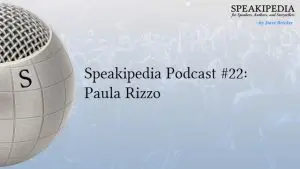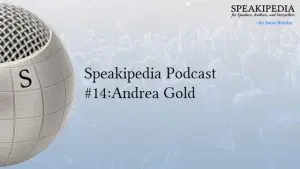There are plenty of good reasons to self-publish, but not all are profit-oriented or even rational. Before you invest in your book, take a look in the mirror and ask yourself some serious questions.
 Why did I write my book?
Why did I write my book?
If the answer is, “I don’t really know. I had a story inside me and it just had to come out,” you’re the sincerest kind of writer, but you may not have a good product upon which to build a publishing business.
Who is my book for?
If the answer is “anybody who loves a good tale with a surprise ending,” you may have a great story and a well-written book, but you may not have a good product upon which to build a publishing business.
What are my goals as a publisher?
If the answer involves the bestseller list, Oprah, selling movie rights to Warner Brothers and licensing a series of toys based on your characters, your ambition is admirable but your expectations for massive success with a startup venture in an industry with which you have no experience are probably unrealistic.
What’s my time and money budget?
If the answer is “I can part with a few thou and I’m willing to work a few days a week after the kids are off to school,” you’re typical and your dedication still counts, but you may not have the time and capital upon which to build a publishing business.
The fact is very, very few books ever make money.
From a retail perspective, let’s say your book is priced at $15 and costs $5.95 to print and ship. Bookstores want 50% of your cover price; subtract $7.50 for a profit of well…do you really want to bother? If you’re going into the retail sales business, why would you sell a cheap product with a tiny profit margin through downstream distributors?
If you do sell through bookstores, consider what happens if you offset print (cheaper for volume runs), distribute 3000 books and sell a thousand copies. Celebration time!…until the stores return 2000 unsold copies. Now you owe them back their wholesale costs plus shipping.
But you may not have to worry about that. Few book retailers even carry self-published books. Why not? Because few publishers bother to ask the questions in the beginning of this article. The majority of self-published books are put together with insufficient resources, insufficient perspective and insufficient vision. With so many poorly edited and poorly designed books available, few bookstores are willing to spend the time to find your excellent needle in the haystack of mediocrity.
Consider your competition. Big publishing houses invest big dollars in the high-stakes game of creating the next blockbuster hit. They have teams of professionals—editors, designers, marketers, salespeople—working together to leverage huge distribution networks for massive catalogs of book merchandise produced to be wholesaled at 50% off cover price and still make money. Many are prepared to sell 30,000 books before they begin making a profit. And of course, with a million other books published this year, you’ll have competition in the trenches, too.
So with all this going against why should you publish and what should you expect?
Fiction Writers
If you’re a fiction or memoir writer, you’re an artist. You make art because you have to and you may incur huge costs to realize your vision. If you oil paint or weld giant dinosaurs out of automotive junk, you probably sell your work so you can afford the time and space to create more, but if it doesn’t sell, you’ll paint or weld anyway. If you’re a writer who wants to see a creative manuscript turned into a well-crafted book, be realistic about your retail business expectations, but acknowledge that art has always gone beyond practical boundaries. Printing a single copy of a great book is utterly impractical but, for some, still entirely worthwhile.
To save on costs and make modest profits, your strategy should be to work efficiently, handling as many book-making tasks as possible by yourself and relying on outside contractors more to check and polish your work than do it for you. You can set up your own blog and create your own eBooks with very few skills, but don’t skimp on excellence. Weak editing and mediocre design won’t properly represent your best creative efforts, and certainly won’t enhance already-limited sales prospects. Work with good editors and designers as you can.
There is an important lesson to be learned from fiction books. They’re almost impossible to evaluate from a practical cost/benefit perspective but they entertain, inspire, motivate, and move us in deep and mysterious ways. You can’t put a price on that, and for many fiction writers, costs are therefore immaterial. If you’re a novelist (as I am), you may elect to “damn the torpedoes” and just keep writing. As long as you know there are torpedoes in the water, keeping your course is an admirable, important and valuable path—even if it never makes a profit. Success may be found in simply taking the journey.
Your greatest asset is your creative writing so instead of spending hours marketing, you may be better served to write more books. Consider expanding your offerings into nonfiction that appeals to specific interest groups. It may not be where your heart is, but it’s still writing and it beats the hell out of working in a cubicle. The larger strategy for your publishing business may be to develop an array of marketable, informational book products that support your more creative ones.
Nonfiction Writers
Nonfiction writers represent the practical side of the publishing spectrum. They solve problems for specific communities of readers who are actively seeking answers. The price of their products is far easier to justify from a cost/benefit perspective. A good programming, business (or publishing) book will easily pay for itself in time saved and value added for skills acquired.
Because nonfiction is targeted to a particular reader community, it’s usually easy to reach that audience. Whether through passive vehicles like forum posting, blogging and advertising or through actively, physically getting yourself in front of prospective readers, there are numerous ways to think outside the bookstore. Margins go up, and if you can put on a good show for larger and larger audiences, you may sell books in respectable quantities. A client of mine who is a seasoned motivational speaker sold 1000 books directly to audience members after one of his rousing keynote speeches.
If you’re a problem-solver with a useful book and a ready audience, you may be well-positioned to start an independent publishing business. Though books are a cheap commodity, you may discover it’s you—not your book—that is the real product. Increased income from consulting, project work and speaking engagements can result from the credibility that comes with “having written the book on the subject.”
Plenty of “get published” services make outrageous claims. Some promise placement on major bestseller lists (which you can book-buy your way onto). Some capitalize on that powerful feeling of accomplishment that comes with seeing your manuscript transformed into a book. Some offer the yellow brick road to fame and fortune. Others imply that with a good book cover, a tidy blog, pretty business cards, a youTube channel and a pinch of their proprietary magic powder, you’ll have all the tools to make it out there in the cold, hard world. But, publishing services that fail to educate you about the nature of the publishing business are at best, abandoning you to your own folly and at worst, selling you an expensive ticket to hell.
Ironically, publishing is only about selling books for the few with time, resources, expertise and connections to move wholesale products in large volume. For the majority of us, publishing may facilitate creative expression and build credibility, but profits will vary considerably from one book to another—regardless of the quality of the writing.
Whether you publish for love or money, be honest about why you’re publishing. Separate your assessment of your book’s writing quality from your assessment of its marketability. If you had a half-million dollars to invest right now, would you invest in your book or play the market? That’s a question big publishers ask every day. You should, too. Understand what you’re getting into and define success at its proper place on the spectrum between retail sales and artistic satisfaction. With some clarity, planning and management of expectations, even a modest publishing venture can be rewarding and satisfying.





